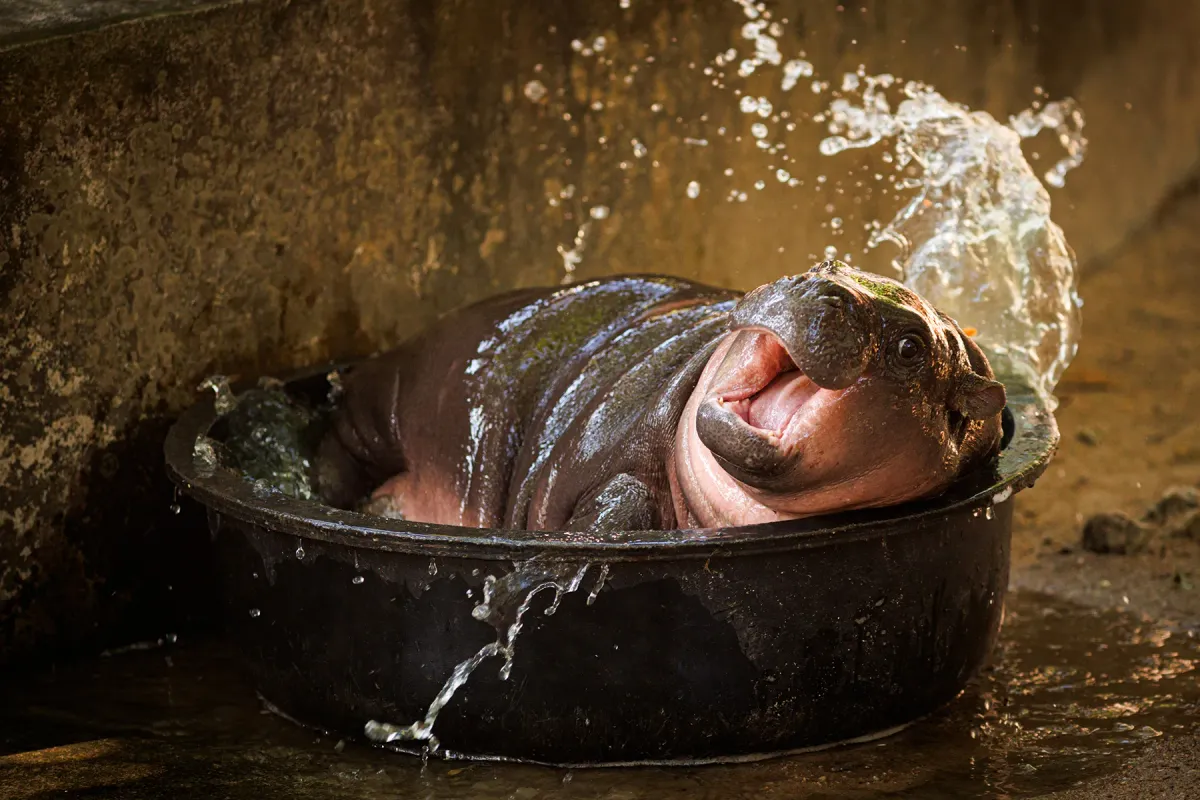The Cult Of Cute
However, Moo Deng is not the first, nor the last animal internet celebrity

Isabella Tsiknas, BA International Relations and Law 09/12/2024
July 10 2024: the pygmy hippo Moo Deng was born. With her pudgy body and adorable expressions, it is clear why throngs of fans and media from across the globe have flocked to her home, the Khao Kheow Open Zoo in Chonburi, Thailand. As any celebrity does, she has a line of merchandise, and even a musical foray. However, Moo Deng is not the first, nor the last animal internet celebrity. How did we get here?
Cute animals have consistently been part of Internet culture. Computer art made with printable characters depicting a cat called Giko were popularised on Japanese forum Strange World in 1999. The same year, the art spilled over to a more popular forum called 2channel, with its English-language counterpart 4chan inheriting its predecessor’s inclination towards cats. The wider 2000s Internet landscape followed suit. Quickening internet speeds also meant sending and receiving media was faster than ever before, meaning more pictures of cute cats could circulate.
In the mid 2000s, the blog ‘I Can Has Cheezburger’ was started, where users humorously captioned cat photos. Averaging 1.5 million hits a day at its peak, the blog brought niche Internet culture to a wider audience. Additionally, investor attention fell on internet virality in the same timeframe, creating further opportunities for digital cuteness culture to grow.
Some furry friends achieved great success in this digital gold rush. Social media phenomenon Grumpy Cat had her own intellectual property and featured in big brand commercials. A copyright lawsuit gave further insight into the valuation of her likeness. Following an agreement between Grumpy Cat Limited and Grenade Beverages LLC to sell 'Grumpuccinos,' Grenade Beverages sold other Grumpy Cat products without prior approval. Grumpy Cat Limited subsequently sued Grenade Beverages for copyright and trademark infringement, Grenade Beverages paying $710 000 USD in damages.
Others thought in broader terms. In 2014, Kerry Lauerman and Izzie Lerer, daughter of the co-founder of Huffington Post, formed the media company The Dodo. Lerer holds a PhD in Philosophy with a focus on human-animal relationships. She stated in an interview with Business Insider India that she hoped The Dodo could ‘bridge the gap between advocacy and entertainment, and create a brand where we're able to tell [animal-related] stories in a way with positive messaging.’
Today, The Dodo is the 6th largest media company worldwide by video views, and Lerer's envisioning of the use of viral content to empower animal rights has paid off. In 2019 alone, The Dodo raised $150 000 USD in donations to animal related causes. Similarly, Moo Deng's role as mascot of Khao Kheow Zoo has brought greater awareness to conservation efforts of the pygmy hippopotamus, which is currently classified as endangered.
However, viewers should also be critical of the animal videos they watch. Experts advise that videos where animals behave unnaturally can indicate involvement in animal trafficking and abuse. Infant macaques, which commonly feature in online videos, are often taken from their parents days after being born to be sold into the exotic pet trade. One must also consider that this year’s online animal stars, Moo Deng, Hua Hua, and Pesto, all live in captivity and possibly experience mistreatment. The theme of this issue is love, and to love animals is to make sure that they thrive. When creators profit off of clicks, it is crucial to be responsible regarding the content one interacts with, no matter how cute it appears to be.



